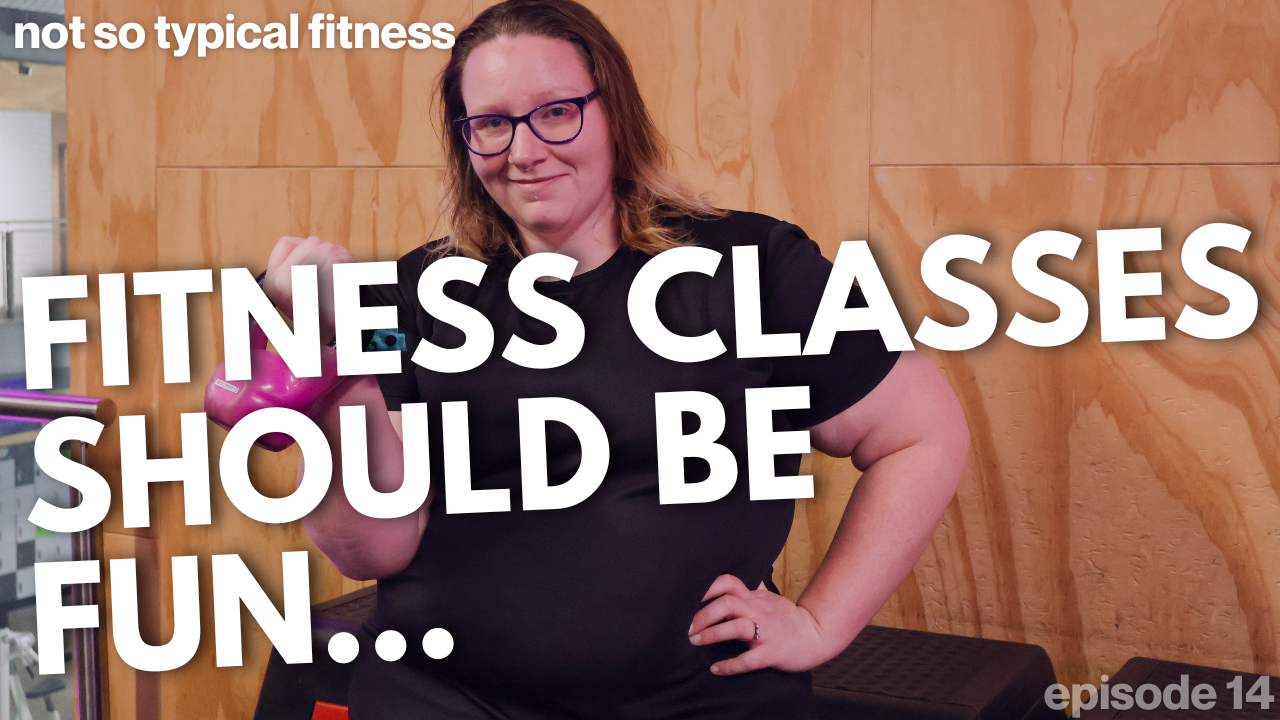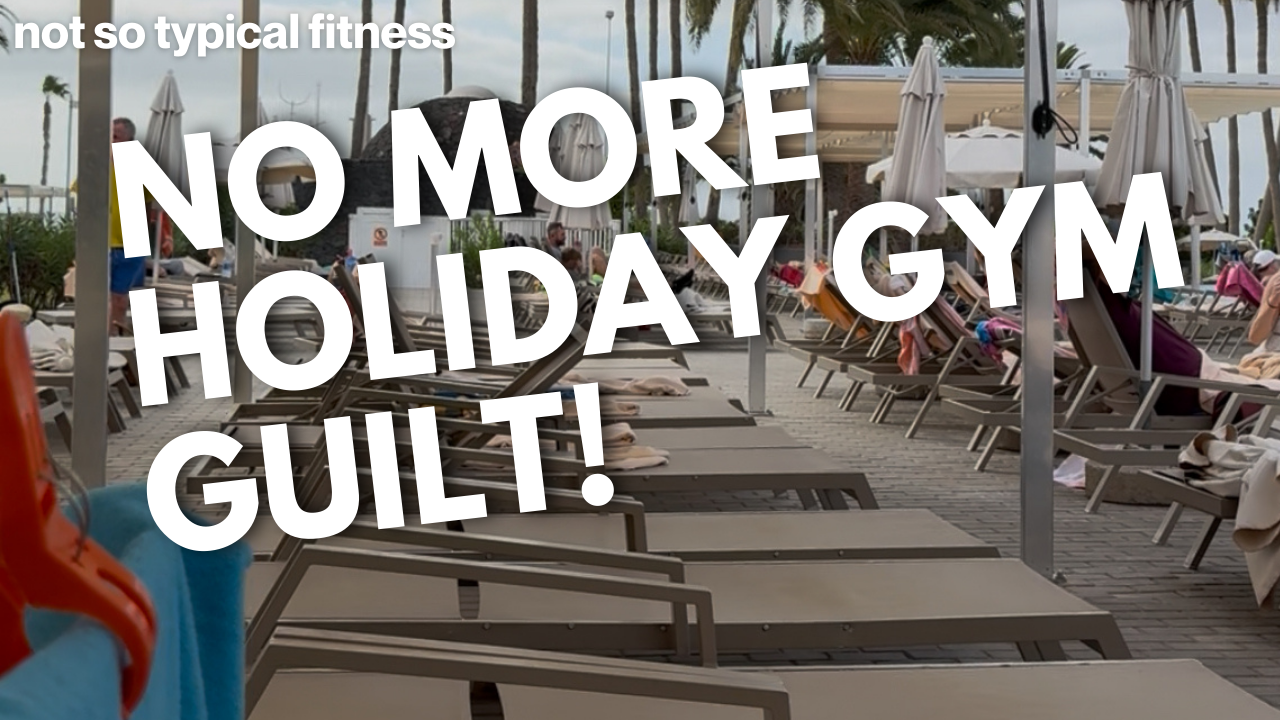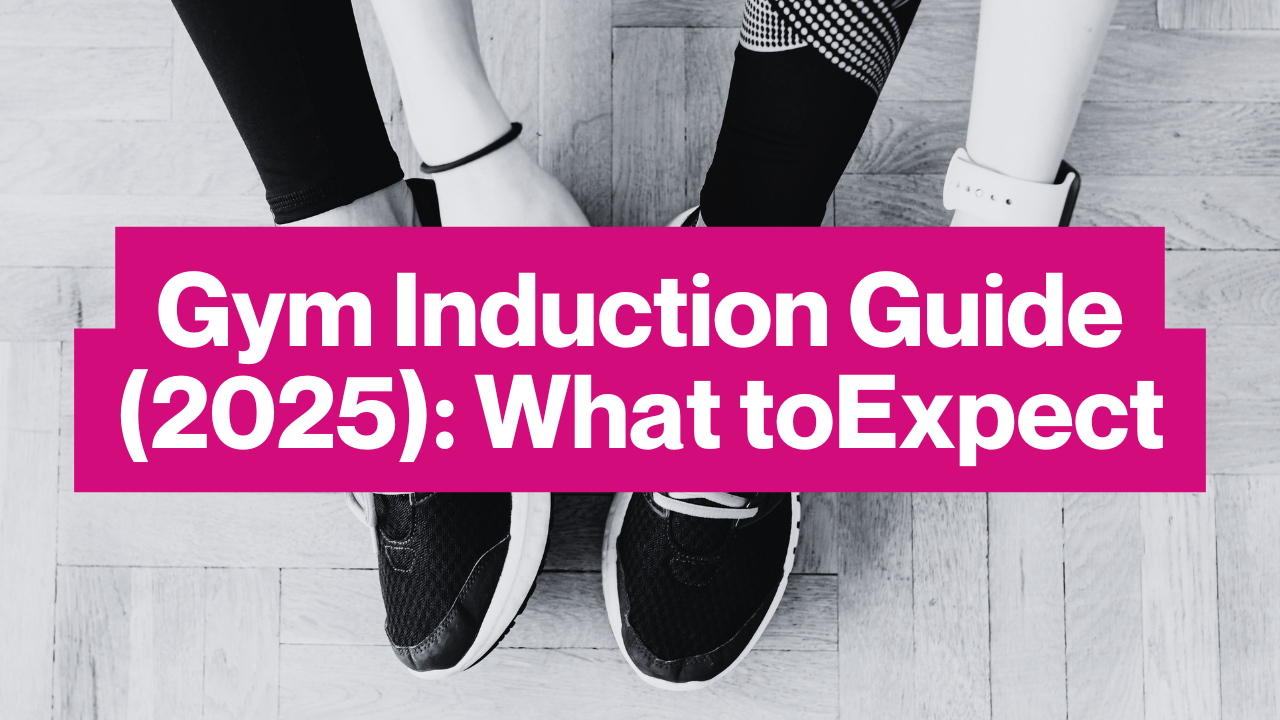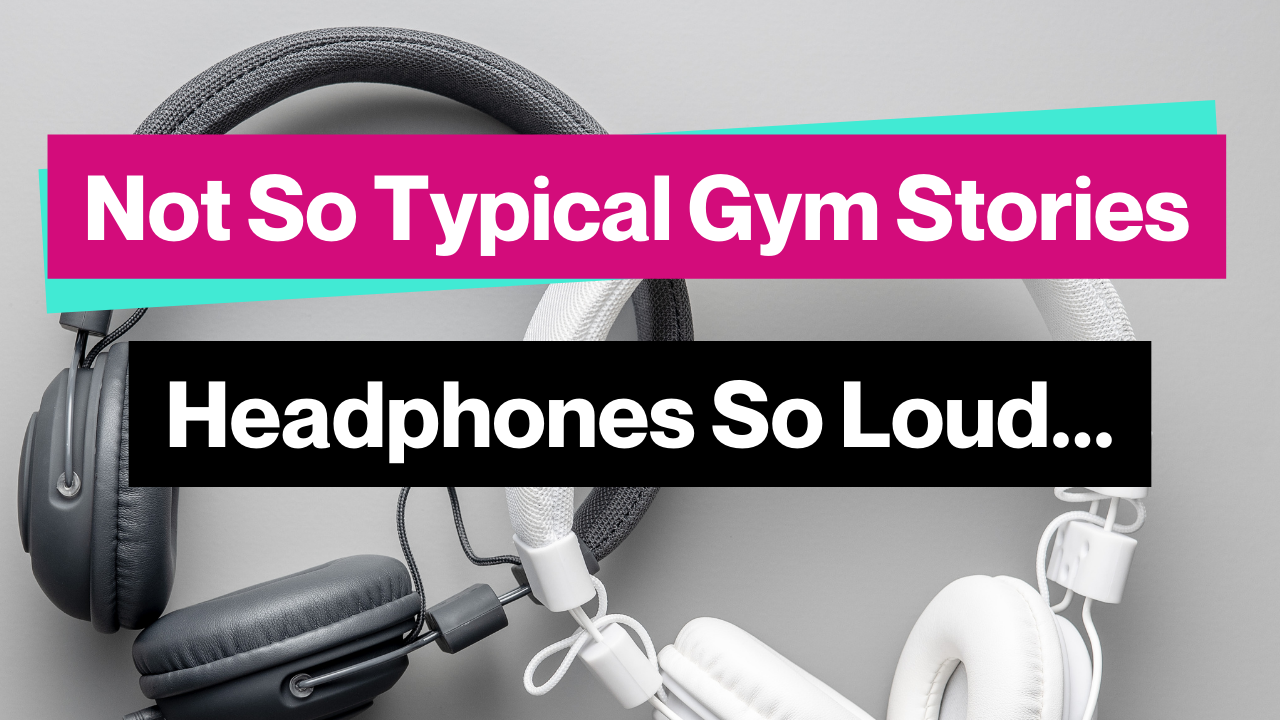The Not So Typical Fitness Blog
A space where fitness meets real life, without the pressure to fit the "perfect" mould. From breaking down gym anxiety to finding routines that actually work for neurodivergent minds and bodies.
In the Not So Typical Blog, you'll find honest conversations about gym anxiety, practical strategies for neurodivergent fitness, and real solutions that work with your brain, not against it. From breaking down what actually happens in a gym induction to managing sensory overload during workouts, this blog is about making health and fitness feel doable, empowering, and unapologetically you.
Whether you're dealing with panic attacks in the gym car park, trying to figure out if the gym is even worth it when you're autistic, or just need to know the unwritten social rules nobody tells you—you're in the right place.
Find What You Need Right Now
Not sure where to start? Choose the topic that resonates most with where you are today. Each category is filled with practical advice, honest experiences, and strategies that actually work.
-
If the thought of walking into a gym makes your heart race, you're not alone.
This section covers everything from panic attacks in the car park to building confidence one tiny win at a time.
You'll find practical strategies for managing social anxiety, word-for-word scripts for gym situations, and a realistic path to feeling like you actually belong there.
Key Topics:
Overcoming gymtimidation and panic attacks
Finding quiet gym times to avoid crowds
Building confidence without the overwhelm
What to expect in your first PT session
Social scripts for every gym situation
Start Here: Complete Guide to Overcoming Gym Anxiety ← Your roadmap to confidence
Popular Posts:
-
Traditional fitness advice isn't designed for neurodivergent brains. This section is.
Whether you're autistic, have ADHD, or are otherwise neurodivergent, you'll find strategies that work WITH your brain—not against it.
From managing executive dysfunction to creating routines that actually stick, this is fitness that understands how your mind works.
Key Topics:
Why mainstream fitness fails neurodivergent people
Managing sensory sensitivities during exercise
Creating routines that accommodate executive function challenges
Understanding interoception (or lack thereof) in fitness
Working with energy crashes and all-or-nothing thinking
Start Here: Ultimate Guide to Neurodivergent Fitness ← Everything you need in one place
Popular Posts:
-
New to the gym and have no idea where to start?
This section breaks down everything you need to know—from what actually happens in a gym induction to understanding reps and sets.
No judgment, no assumed knowledge, just clear answers to the practical questions that keep you from starting.
Key Topics:
What happens in a gym induction (step-by-step)
Understanding gym equipment and how to use it
Gym rules and etiquette (with exact scripts)
What to wear and bring
How many sessions per week as a beginner
Setting realistic goals
Start Here: Gym Basics for Beginners Guide ← Your complete beginner roadmap
Popular Posts:
-
Fitness isn't just physical—and it's definitely not about "no pain, no gain."
This section explores the intersection of mental health and exercise, from recovering from burnout to staying motivated when motivation disappears.
It's about building a sustainable relationship with movement that supports your wellbeing, not sabotages it.
Key Topics:
Recovering from autistic burnout
Ditching toxic fitness culture
Staying consistent without motivation
Non-scale victories worth celebrating
Managing rejection sensitivity around fitness
Some days I struggle too (honest talk from a trainer)
Start Here: From Burnout to Balance: Rebuilding My Relationship with Exercise ← My personal journey
Popular Posts:
-
If bright lights, loud music, strong smells, or the feeling of sweat on your skin makes the gym unbearable, this section is for you.
Learn practical strategies for managing sensory overwhelm, finding sensory-friendly gym environments, and adapting exercises to reduce discomfort—all while still building strength effectively.
Key Topics:
Finding quiet gym times to reduce sensory input
Sensory-friendly workout modifications
Managing sweat, smells, and textures
The state of gym accessibility (and what needs to change)
Creating sensory-accommodating exercise routines
Start Here: Sensory-Friendly Fitness ← Your complete sensory guide
Popular Posts:
-
Want to know who's behind Not So Typical Fitness?
This section shares my journey to becoming a personal trainer, my late diagnosis of autism and ADHD, and why I'm on a mission to make fitness accessible for neurodivergent people.
It's the personal stuff that shapes how I coach and why I do things differently.
Key Topics:
My journey to becoming a personal trainer
Late diagnosis: discovering I'm autistic and have ADHD
Why neurodivergence shapes my coaching approach
My vision for changing the fitness industry
What makes Not So Typical Fitness different
Working with me (and what to expect)
Start Here: About Rhiannon ← Get to know me
Popular Posts:
Or, see all the blogs in the About Rhiannon Category.
Choose a blog category here:
About Rhiannon | Not So Typical Fitness | Mental Health | Gym Accessibility | Getting Started | Neurodivergent Fitness
Start With These In-Depth Guides
Looking for comprehensive resources that cover everything in one place? These pillar guides give you complete roadmaps for the most common challenges.
Ready to Take the Next Step?
Whether you need a structured program, guided support, or just a community that gets it, there's an option that fits where you are right now.
New Here? Start With These
Not sure where to begin? Follow this simple path:
Understand Why Traditional Fitness Fails You
Learn why mainstream approaches don't work for neurodivergent people
Read the Ultimate Guide →Address Your Biggest Barrier
Choose what's holding you back most right now
Gym Anxiety Guide →Sensory Solutions →
Learn the Basics
Get clear on how gyms actually work
Gym Basics Guide →What Happens in an Induction →
Take Action
Choose your path forward
Get the £27 Program →Book 3 Sessions →
Join Free Community →
Why Your Brain Sabotages Your Workouts (And What Actually Works Instead)
You want to exercise but can't make it happen. It's not laziness—it's executive dysfunction. Here are 10 strategies that actually work with your neurodivergent brain.
From Shutdown to Self-Advocacy: My Late Diagnosis Journey
It started with a Christmas party that changed everything. What I thought was anxiety turned out to be my first autistic shutdown; the moment that led me to discover I’m AuDHD. This is my story of late diagnosis, self-discovery, and learning that being different isn’t something to fix; it’s something to understand, accept, and advocate for.
The Benefits of Being Active & Moving Your Body
You don’t need a full workout to feel the benefits of movement. From stretching in bed to taking short walks, discover how small, consistent actions can boost your mood, mobility, and overall well-being.
Wolverhampton Personal Trainer Prices & What You Actually Get (Inclusive Options)
As an AuDHD personal trainer based in Wolverhampton, I help autistic, ADHD, and neurodivergent people build realistic, anxiety-friendly fitness routines that work with your brain, not against it.
Burnout to Balance: Rebuilding My Relationship with Exercise
After years of pushing through exhaustion, I hit burnout and had to relearn how to move my body with care instead of punishment. This is the story of how I rested my way back to strength, found joy in tiny steps, and rebuilt a sustainable, guilt-free relationship with exercise.
How to Stay Motivated Without Motivation
If you’ve ever wondered why you can’t stick to your plans, it’s not because you’re lazy; it’s because your brain feels unsafe. For autistic, ADHD, and anxious minds, motivation isn’t broken; it’s protective. This blog breaks down how to create “safe plans” that work with your brain instead of against it.
Will Lifting Weights Make Me Bulky?
Worried lifting weights will make you “too bulky”? This common myth holds many women back from discovering the benefits of strength training. The truth is, lifting builds confidence, resilience, and health — not bulk.
Whose Job Is It Anyway? Gym Staff vs Member Roles
Fitness Coaches aren’t your cleaners and re-racking is part of your responsibility. Let’s bust the myths about gym staff roles and why respect matters.
How Many Times Should You Go to the Gym as a Beginner? (Spoiler: Less Than You Think)
If you’re new to the gym, you don’t need to train every day. In fact, starting with 2–3 sessions per week is the best way to build confidence, avoid burnout, and make fitness a routine you can actually stick to. Small steps really do add up.
Why It’s Okay If You Don’t Use the Hotel Gym on Holiday
On my recent holiday at Riu Paraiso in Lanzarote, I had every intention of using the hotel gym. I even stepped inside to check it out. But in the heat, my body was asking for rest, not another workout. Here’s why skipping the gym on holiday is not only okay, but it can actually help your fitness journey.
Gym Induction Guide 2025
Nervous about your first gym induction? This guide explains exactly what happens, how to prepare, and tips to feel confident from day one.
Headphones So Loud That Gym Etiquette Gets Ignored
She couldn’t even hear me ask her to re-rack because her music was blasting. When she finally did? She threw the weights on the floor. Gym etiquette isn’t about being bossy; it’s about respect, safety, and making the gym less intimidating for everyone.
















